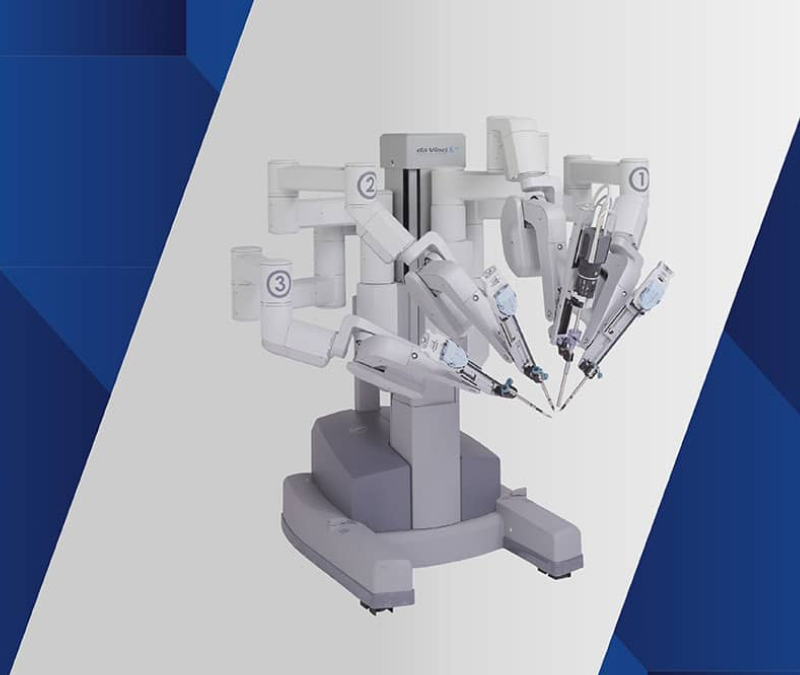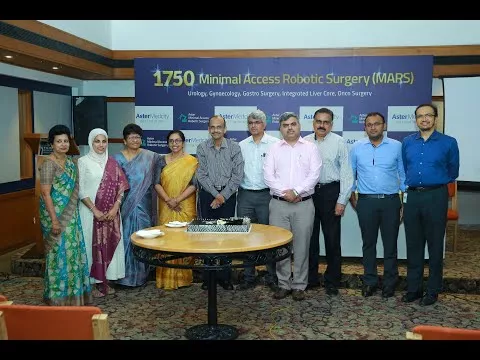Aster Centre for Robotic Liver Surgery functioning under Aster Integrated Liver Care is a specialized department dedicated to the diagnosis, treatment, and management of liver conditions using robotic-assisted technology. This center combines the expertise of liver surgeons with advanced robotic systems to provide patients with precise and minimally invasive surgical options for various liver disorders. It is managed by a team of highly skilled and experienced liver surgeons who have undergone specialized training in robotic-assisted surgery.
The center specializes in performing liver surgeries using minimally invasive techniques with the assistance of robotic technology. Robotic-assisted surgery involves making small incisions, through which robotic instruments and a high-definition camera are inserted. This approach reduces trauma to surrounding tissues, resulting in shorter hospital stays, reduced pain, faster recovery times, and improved cosmetic outcomes for patients.
The Aster Centre for Robotic Liver Surgery offers a wide range of surgical procedures using robotic-assisted technology, including but not limited to:
- Robotic-assisted liver resection: Surgical removal of part or all the liver for conditions such as liver cancer, liver metastases, or benign liver tumors.
- Robotic-assisted liver transplantation: Surgical procedure for patients in need of liver transplantation, with robotic technology assisting in precise graft implantation.
- Robotic-assisted liver cyst fenestration: Surgical drainage and removal of liver cysts, such as hepatic cysts or polycystic liver disease.
- Robotic-assisted liver biopsy: Minimally invasive procedure to obtain liver tissue samples for diagnostic purposes.
- Robotic-assisted liver ablation: Precise destruction of liver tumors using techniques such as radiofrequency ablation or microwave ablation.
- Robotic-assisted liver drainage procedures: Surgical interventions for biliary tract disorders, such as robotic-assisted bile duct exploration or robotic-assisted choledochal cyst excision.
The centre follows a multidisciplinary approach to patient care. It collaborates closely with other specialists, such as hepatologists, radiologists, pathologists, and oncologists, to ensure comprehensive evaluation, accurate diagnosis, and effective treatment planning for each patient. Robotic liver surgery offers several benefits to patients. These include reduced blood loss, lower risk of complications, shorter hospital stays, faster recovery, and improved functional outcomes. The minimally invasive nature of robotic-assisted surgery promotes quicker return to normal activities and enhances the quality of life for patients.
Blogs
The source of trustworthy health and medical information. Through this section, we provide research-based health information, and all that is happening in Aster Hospital.





